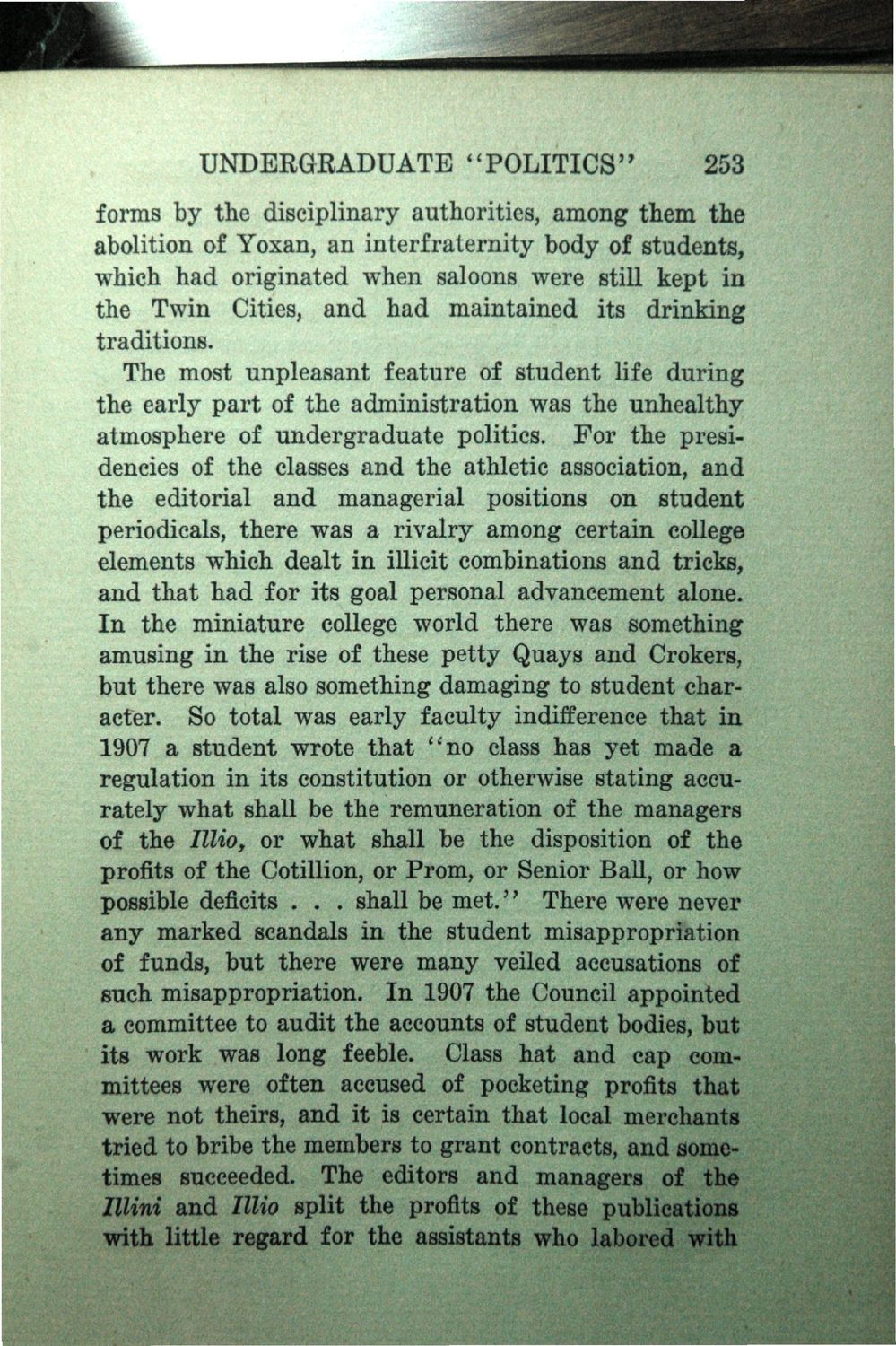| |
| |
Caption: Book - History of the University (Nevins)
This is a reduced-resolution page image for fast online browsing.

EXTRACTED TEXT FROM PAGE:
UNDERGEADUATE "POLITICS" 253 forms by the disciplinary authorities, among them the abolition of Yoxan, an interfraternity body of students, which had originated when saloons were still kept in the Twin Cities, and had maintained its drinking traditions. The most unpleasant feature of student life during the early part of the administration was the unhealthy atmosphere of undergraduate politics. For the presidencies of the classes and the athletic association, and the editorial and managerial positions on student periodicals, there was a rivalry among certain college elements which dealt in illicit combinations and tricks, and that had for its goal personal advancement alone. In the miniature college world there was something amusing in the rise of these petty Quays and Crokers, but there was also something damaging to student character. So total was early faculty indifference that in 1907 a student wrote that "no class has yet made a regulation in its constitution or otherwise stating accurately what shall be the remuneration of the managers of the fflio, or what shall be the disposition of the profits of the Cotillion, or Prom, or Senior Ball, or how possible deficits . . . shall be met." There were never any marked scandals in the student misappropriation of funds, but there were many veiled accusations of such misappropriationjlln 1907 the Council appointed a committee to audit the accounts of student bodies, but its work was long feeble. Class hat and cap committees were often accused of pocketing profits that were not theirs, and it is certain that local merchants tried to bribe the members to grant contracts, and sometimes succeeded. The editors and managers of the lllini and lllio split the profits of these publications with little regard for the assistants who labored with
| |